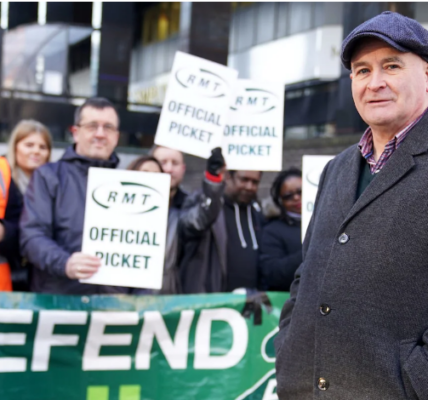
Angela Rayner is in charge of delivering 1.5 million new homes by 2029 (Image: PA)
Housing has turned into a battle of the generations that has exposed a shocking lack of compassion towards older people. Labour has taken aim at so-called Nimbys – the ‘Not in my backyard’ residents – and is ripping up planning rules to stop them objecting to new developments.
It has become fashionable to have a go at homeowners who are resistant to change. Sneering at “boomers” who managed to buy a house when they were young for not wanting an ugly development at the end of their road is now an acceptable form of snobbery, a way of looking down on people who live outside the big cities and like a settled life.
Dismissive claims are made about how selfish curmudgeons are stopping desperate young people from getting on the housing ladder, just so they can protect their lovely view. There is no acknowledgement that communities are delicate ecosystems that are based on people, not just properties.
Consider the quiet street where residents share the same sensibilities, who have brought up their children and now live quietly in retirement, with everyone mowing their lawn, keeping their homes neat and presentable and obeying the ever more complicated system of bins imposed on them by the council.
Suddenly, a house of multiple occupancy appears and there is nothing they can do to stop it. All of a sudden, the neat lawn is paved over and packed with cars as the family home becomes a house for transient residents.
The character of the small community changes but complaining makes you a nimby. Every few years, a politician or a property expert will suggest that the little old lady rattling around in a four bedroom house should sell up.
Bed blockers, you have had your time, move out and let young people have your home. No consideration is given to the emotional ties someone in their eighties or nineties may have to the place they have brought up their family, the happy times they spent with the spouse they have long since lost.
No thought is given to how traumatic moving to somewhere new at that age is, how deteriorating sight and hearing mean familiarity with your surroundings are not only a great comfort but absolutely essential to functioning day to day.

‘Housing has turned into a battle of the generations’ (Image: Getty)
The generational battle, of course, goes both ways. Older people often look down on those whingeing about not being able to buy their first home when they waste money on expensive takeaway coffees and breakfast on avocado on toast.
But the figures are clear. It is far harder today to buy a home than it was 40 years ago. Between the 1970s and 90s average house prices hovered at around four times the average wage. The ratio shot up after the millennium to more than six times as much and now is nearly nine times of earnings.
Taking a flask of coffee and switching to porridge is not going to bridge that huge gap in finances. But it does show something interesting that is rarely acknowledged in this increasingly bitter row.
Older generations generally settled down earlier, only went out to eat on special occasions and made it about as far as Greece on holiday if they were lucky. Few people went to university. They have gone through boom and bust, negative equity, and put up with gruelling work conditions to make ends meet.
Younger generations have a wider range of life opportunities, busier social lives, more choice, more travel, food delivered to the door at any time of day or night after being ordered using the £1,000 mobile phone in their pockets. A home is something most people aspire to and those in their 20s and 30s must be given a realistic chance of buying one, but claiming pensioners had it easy is lazy and unfair.
And flooding the country with new homes that do not have the consent of local communities will not mean those trying to get on the property ladder are suddenly able to secure a mortgage. It is not only the left that attacks senior citizens in the row over how to tackle England’s housing crisis, but it is Labour that has very explicitly chosen to pick a fight with nimbys.
Deputy Prime Minister Angela Rayner, who is in charge of delivering 1.5 million new homes by 2029, said her radical overhaul of planning rules will fix the system that “caves into the blockers”. Government sources went on to accuse the Tories of failing to “confront the nimbys” in their party.
But attacking people who have worked hard and done the right thing is not only ugly, it is unproductive and unlikely to solve the housing crisis.


